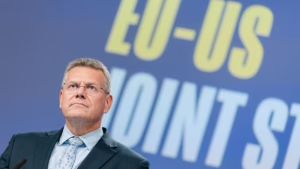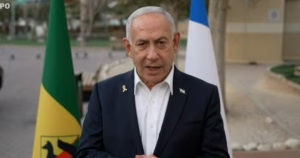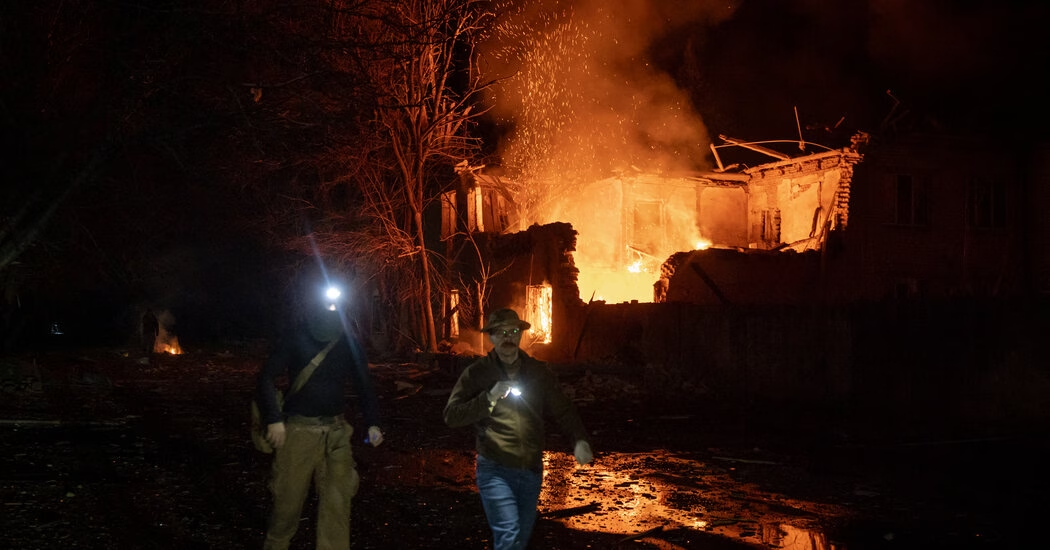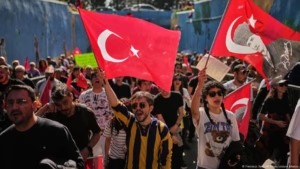The White House has expressed warmth towards the Kremlin for two months, but Russian President Vladimir Putin has shown little willingness to cooperate in return. Despite his professed openness to cooperation, Putin’s forces continue to bombard Ukraine and impose conditions on peace negotiations. In a recent statement, Putin suggested that a temporary Ukrainian government might need to be installed under the auspices of the United Nations, with elections needed to pave the way for a lasting end to the war. This implies that a quick peace is not imminent, as Putin once again stated that he cannot reach a deal with Ukraine’s President Volodymyr Zelensky, whom Moscow has been disparaging as illegitimate.
President Trump took notice of Putin’s comments and expressed anger, threatening to impose tariffs on any country buying Russian oil. He stated that if he believes Russia is at fault for the bloodshed in Ukraine, he would impose secondary tariffs on oil exports from Russia.
The question remains whether Washington is prepared to increase pressure on Putin, who has long appealed to Trump with his authoritarian power and crusade against liberals. Stefan Meister, a Russia expert at the German Council on Foreign Relations in Berlin, believes that Trump wants a deal with Putin so much that he may not immediately impose pressure on Russia. But Meister also believes that a turning point is being approached, where Trump will realize that Putin may not be interested in any deal and will continue to make additional demands.
On the battlefield, Putin shows no signs of backing down. Russian drones are intensifying their bombardment of Ukrainian cities, and Ukrainian commanders have warned of an impending large-scale Russian offensive. Putin claims that his army is nearing the completion of its objectives, which ultimately aim to bring Ukraine back under Moscow’s control.
Despite the Russian force’s brutality and disregard for Ukrainian sovereignty, Ukraine has agreed to every cease-fire proposal put forward by the Trump administration. However, these efforts have earned Kyiv limited goodwill in Washington, where skepticism towards Ukraine is high among leaders.
Trump also threatened Zelensky over the weekend for reportedly trying to back out of a mineral rights deal with the US. Putin has questioned Ukraine’s sovereignty and aimed to topple Zelensky’s government with his invasion in 2022. Trump has thus far refused to acknowledge Russia’s responsibility for starting the war and has taken steps believed to benefit the Kremlin, including suspending US efforts to counter Russian sabotage and disbanding an FBI team that targeted Russian oligarchs.
Overall, the conflict and US-Russia relations remain tenuous, with both sides blaming each other for violations and a sense of disappointment permeating the air.
Source: https://www.nytimes.com/2025/03/31/world/europe/putin-trump-russia-ukraine.html





